Turkey's Alevis' Holy Month Ends

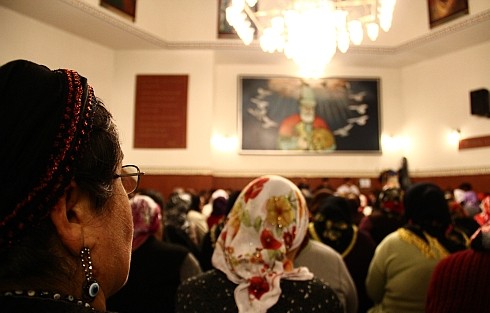
This year set several landmarks in the relations between Turkish state and Turkey's Alevis, an unofficial religious minority with a population of 20 million people in Turkey. The parliament restaurant had special menus for Alevis where Alevi leaders organized fast-breaking dinners. Even the president hosted representatives of Alevi community at a dinner ceremony in his residence. Bianet attended one of the 12 after dinner talk sessions in a cemevi in Okmeydani, Istanbul.
Similarly with entering a mosque, you also leave your shoes out in cemevis. Normally men and women sit on separate sides of the hall. But women outnumbered men this time, so women, men and children all sat together. Some of the women were veiled which is actually not a requirement in Alevi tradition.
When we walked through the entrance, a huge portrait of Haji Bektash Veli, a prominent teacher of Alevism, holding a lion and a gazelle, with 12 pigeons flying in circles. According to the tradition, lion and gazelle represent the good and the evil, and the weak and strong, while the pigeons symbolize the 12 imams, Alevi apostles.
Portraits of 12 imams are spread through the walls of cemevi. There are many other portraits, with only Muhammed's being blank since Islam prohibits his depictions. Throughout the walls, there are many quotes belonging to many Alevi scholars.
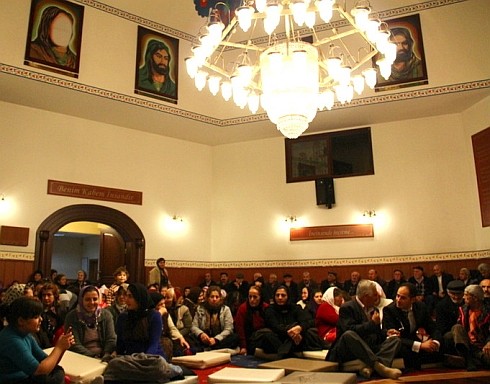
Dede, elderly man leading Alevi service, opened the session with a salutation. He preached on the Battle of Karbala, where a small group of supporters and relatives of Muhammad's grandson Hussein ibn Ali were brutally killed by a much larger military detachment from the forces of Yazid I, the Umayyad caliph, whom Hussein had refused to recognize.
Dede said that the moral of the story was to never submit on cruelty, emphasizing on the importance of justice. "Many Alevis mourn during the month of Muharram for the martyr Hussein. But it is also important to understand his principles."
Dede continued the session with occasional music performance with saz, a traditional Anatolian string instrument.
Reminding the formal brutality on Turkey's Alevis in 1990s, Dede said Alevis should unite to prevent future tragedies. "This is the only we can follow the path of our teachers Hussein, Pir Sultan Abdal, Hallaci Mansur and Nesimi." (NV)
Engineers Inspect Hasankeyf: Caves Damaged
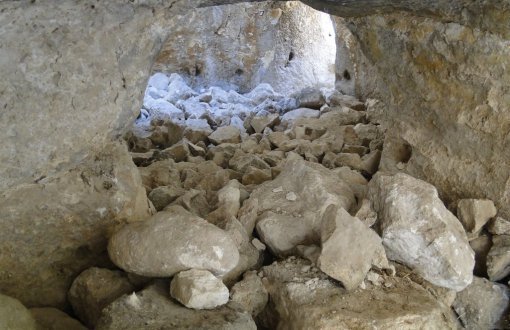
Sexual, Physical Violence Against People With Disabilities Increase

Villagers on Watch in Çanakkale Against Geothermal Power Plants
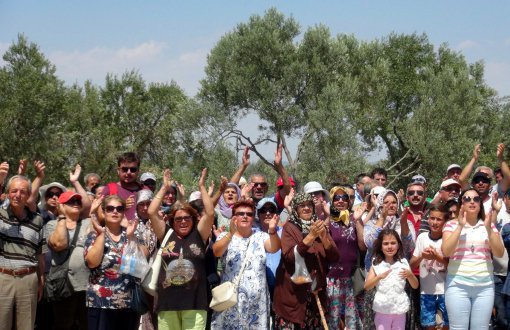
Judge Replaced Ahead of Summary Judgement in Soma Trial
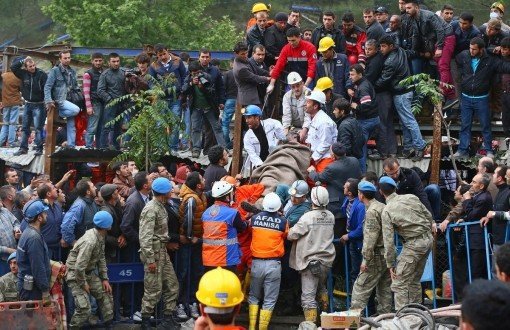
Most Miner Families Withdraw Complaint in Occupational Homicide Trial in Şirvan





